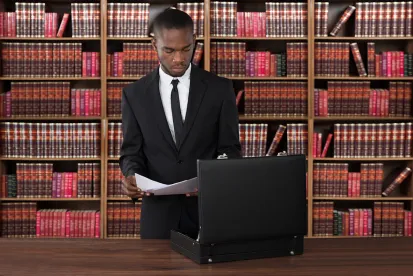As we say hello to a new year, let’s review 22 of the most common Affirmative Defense available to you under Ohio law. Most cases that we defend involve at least one, and usually more than one, of these defenses. Often the best avenue for summary judgment is one of these Affirmative Defenses, so keep these in mind when planning your strategy.
-
Failure to state a claim upon which relief may be granted. If the allegations of the Complaint do not express a cause of action under Ohio law, dismissal of the Complaint is warranted.
-
Comparative negligence. If Plaintiff’s negligence is greater than 50%, defense verdict. If Plaintiff’s negligence is 50% or less, Plaintiff’s verdict is reduced by that percentage.
-
Statute of limitations. If the plaintiff files the complaint after expiration of the applicable statute of limitations, dismissal of the complaint is warranted.
-
Sudden medical emergency. The negligence of the defendant is excused when the conduct was the result of a medical emergency that could not have been reasonably anticipated.
-
Open and obvious doctrine. If the item that causes the plaintiff’s injury was observable prior to the plaintiff encountering it, the premises owner owes no duty to the plaintiff.
-
Two-inch rule (a.k.a. trivial defect rule). The premises owner owes no duty to a plaintiff with respect to deviations that are less than two inches or other trivial defects with the premises.
-
Step in the dark rule. The plaintiff steps into a darkened area at his or her own peril, and the premises owner owes no duty to the plaintiff under these circumstances.
-
Primary assumption of the risk. When a plaintiff voluntarily engages in an activity that is so inherently dangerous that the danger cannot be eliminated, the defendant owes no duty to the plaintiff.
-
Lack of personal jurisdiction. If the defendant lacks sufficient ties to the venue in which the lawsuit was filed, the complaint should be dismissed or transferred to an appropriate venue.
-
Unavoidable accident doctrine. Sometimes an accident is not caused by the negligence of any party and could not have been reasonably foreseen and avoided by the use of ordinary care.
-
Intervening, superseding causation. When the defendant’s negligent act is following by a second negligent act that is new and independent from the original negligent act, the defendant is absolved of liability.
-
Graves Amendment. The owner of a motor vehicle that rents or leases the vehicle shall not be liable by reason of being the owner of the vehicle for harm to persons or property caused by the use, operation, or possession of the vehicle during the period of the rental or lease, if the owner is engaged in the trade or business of renting or leasing motor vehicles, and there is no negligence or criminal wrongdoing on the part of the owner.
-
Sudden emergency. A driver is absolved of negligence when the driver’s actions were prompted an emergency that was sudden and not caused by the driver.
-
FAAAA preemption. The Federal Aviation Authorization Administration Act prohibits States from “enact[ing] or enforce[ing] a law, regulation, or other provision having the force and effect of law related to a price, route, or service of any motor carrier[] or any motor private carrier, broker, or freight forwarder with respect to the transportation of property.” 49 U.S.C. § 14501(c)(1)
-
Waiver. I written waiver of a cause of action signed by the plaintiff serves as an absolute bar to a later action on any claim encompassed within the waiver.
-
The Yager defense. For public transit, the occurrence of a jerk during travel does not constitute evidence of negligence. So long as the movement of the bus is not unusual in its suddenness, force, or violence, there is no negligence for the bus operator.
-
Plaintiff is not the real party in interest. If the loss was actually incurred by another person or entity, then the plaintiff is not the real party in interest and is not entitled to recover the damages requested.
-
Statutory immunity. Ohio statute provides immunity to certain persons and entities (such as political subdivisions) under specific conditions.
-
Collateral estoppel. The doctrine of collateral estoppel bars the re-litigation of an issue when that issue was tried and decided in a previous case.
-
Spoliation of evidence. When evidence is intentionally or negligently destroyed by the plaintiff before the defense has an opportunity to examine the evidence, the Court may impose a sanction and in some instances can dismiss the lawsuit.
-
There was no dangerous condition or defect. If the plaintiff cannot identify the reason for the fall, then the premises owner is not liable.
-
Act of God. When the injury-causing incident is the result of natural causes – such as earthquakes, violent storms, lightning and unprecedented floods – that were not foreseeable by the exercise of reasonable care, the defendant is not liable.



 />i
/>i
